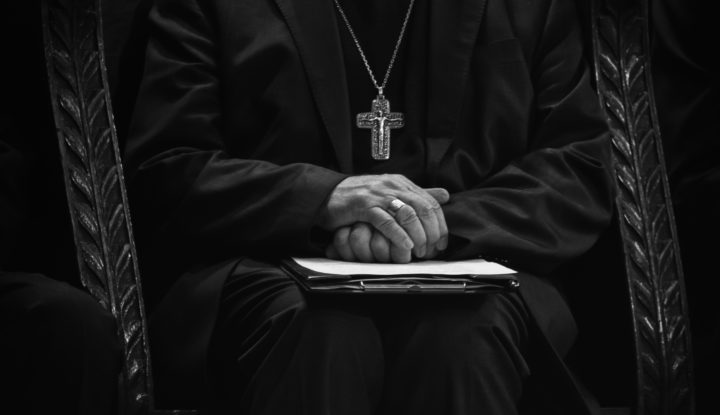It is difficult to argue that the Archbishop of Canterbury, the Bishop of Leeds, and the Reverend Giles Fraser are marginalised from British public life. As the senior Bishop of the state church, the Archbishop of Canterbury among his many other privileges enjoys a seat in Parliament where he can vote and speak on our laws alongside two dozen of his fellow bishops. The Bishop of Leeds is one of them, at the heart of the establishment, enjoying ready access to all its corridors and corners. Giles Fraser enjoys, as ancillary pulpits to his regular one, frequent appearances on BBC television and radio news programmes, as well as a weekly column in The Guardian.
But in spite of this, these three men are very concerned. Giles Fraser and the Bishop of Leeds have both written articles this week resisting what they see as the edging out of their views from the public square and the Archbishop of Canterbury has taken to Twitter to celebrate their arguments as ‘excellent’ and ‘brilliant’ respectively. What has got them so hot under the dog collar are the statements by some BBC Radio 4 presenters that the two minute forty seconds religious slot Thought for the Day is not very interesting and wider views that, to be more reflective of the fundamental value commitments of the public, it should include some non-religious perspectives. Bad-tempered arguments about Thought for the Day are perennial but the viciousness of the response from Christian voices this time is something new.
To the extent that they are not built on unpleasant ad hominem insults against the intellectual abilities of the presenters and other critics (according to the the Bishop, a five-year-old could refute them) the arguments they make are simple to summarise and both are trying to tie this event to a larger point. The Bishop of Leeds’ argument is built on the claims that (i) the Today programme is underpinned by ‘unargued for and unarticulated secular humanist assumptions’ which are regarded as ‘neutral’ and (ii) religious perspectives are needed to offer an alternative view to these ‘easy and lazy assumptions of those who think their lens is either self-evidently true or neutral’. The Bishop is generous to those he considers as merely misguided adherents to the ‘myth of neutrality’. Giles is less so. The argument of his intemperate blog is less clear but includes the claim that there is a ‘culture of sniggering contempt towards religion is endemic within the BBC’ and that attempts to have contributors from those with a non-religious worldview such as humanists are a ‘strategy to edge out the faith perspective from public life’.
It’s not clear what the Bishop means by a humanist view, but he doesn’t seem to mean anything any humanist would recognise. Neither man offers any evidence for their points or their claims about the religious beliefs or otherwise of Today presenters. Contrary to what they say, Christianity in the BBC and elsewhere continues to enjoy representation totally out of proportion to its popularity with the public at large. Christian services are broadcast on our public service radio and television every week; no other religious services are, and there is no analogous broadcasting by humanists for humanists. The Archbishop of Canterbury has an annual television message on the BBC; no other representative of a religious organisation does. Religion in general and Christianity in particular are given significance and weight in BBC ethics output like Sunday Morning Live, The Big Questions, Beyond Belief, and others to a disproportionate extent.
So what might be the cause of these fire and brimstone responses, so unjustified by the facts? We’ve all become quite used to Church of England leaders in particular, as a result of the defensiveness that those suffering a loss of privilege often feel, lashing out in this way, so let’s hope that is the cause of these overreactions. The alternative is that this is deliberate mock outrage to obfuscate the genuine privilege their view enjoys in practice and hold back any increase in equality of treatment for others – especially those with non-religious worldviews.
(Oh – and on the Thought for the Day question, yes, humanists and other people with an ethical and existential view on the day’s events should obviously be included. It’s nonsensical and rude to imply that they do not have a perspective worth including of the same type and at least the same quality as religious ones.)
